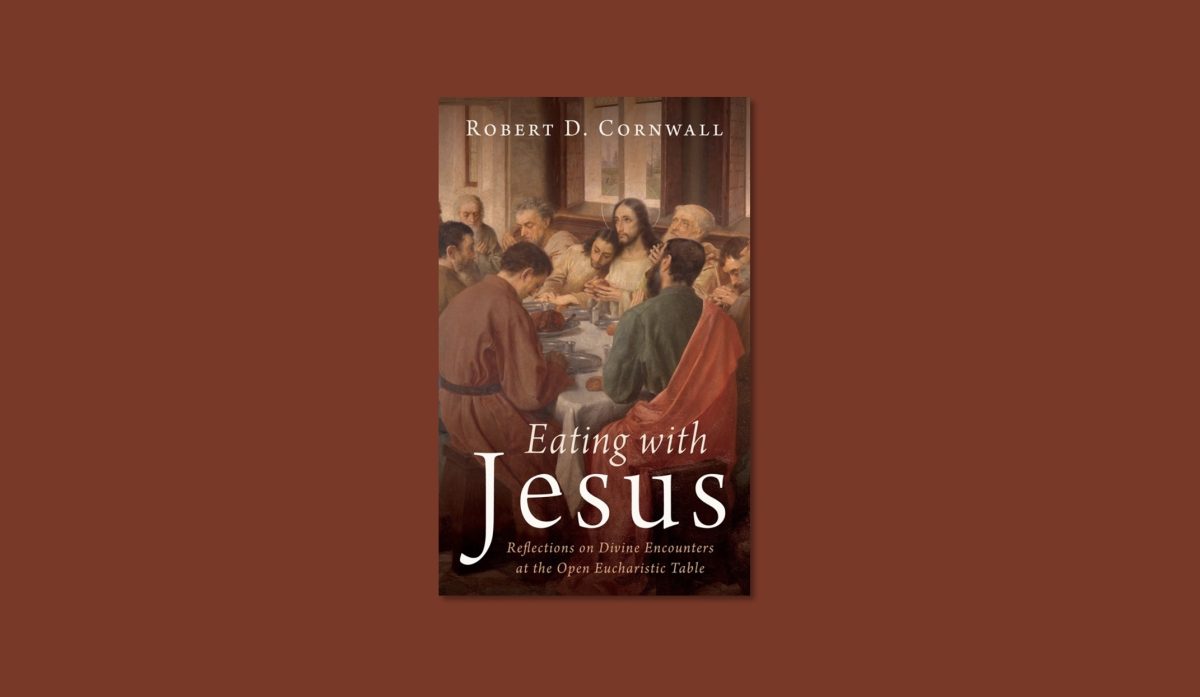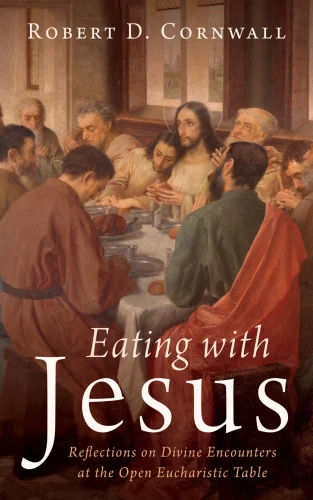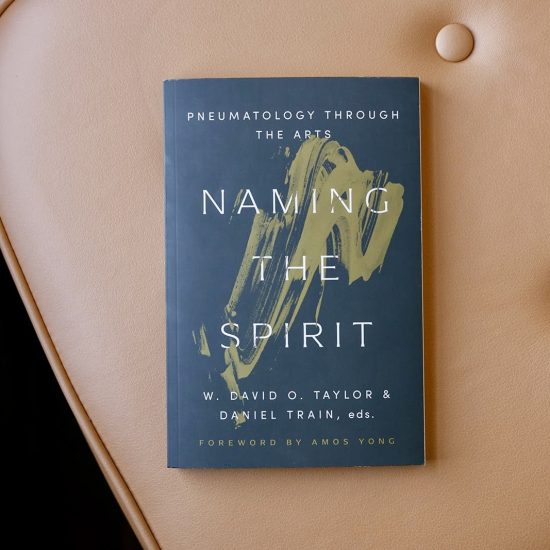
We members of the Christian Church (Disciples of Christ) love talking about “the table.” Our small, mainline denomination regularly centers the theology of gathering together for communion — whether it is in casual conversations or Sunday sermons. Eating With Jesus: Reflections on Divine Encounters at the Open Eucharistic Table embraces this tendency and beautifully packages it for all Christians in book form. And in doing so, showcases just how radical the notion of table fellowship can be.
You might know Robert D. Cornwall from his book reviews that we publish every week here at Word&Way. An ordained Disciples minister, he has retired from full-time parish ministry and currently serves as a minister-at-large in Troy, Michigan. Cornwall holds a doctorate in historical theology from Fuller Theological Seminary and is the author of numerous books, including Second Thoughts About the Second Coming, coauthored with Ronald J. Allen, which I previously reviewed. He also regularly writes at his blog, Ponderings on a Faith Journey.
Eating With Jesus explores the question of who exactly is welcome at Christ’s table. Various denominations and branches of Christianity have come up with rules that answer this for their congregants: you might need to be baptized (sometimes in a particular manner), affirm a doctrinal statement or creed, and have a certain marital status or sexual orientation. So given this long history of qualifiers, is there a theological and biblical foundation for an open table? Cornwall keenly sets aside the question of who should preside over the Eucharist — something that could entirely fill another book — in order to focus on this fascinating sacramental issue.
The book makes the case that removing these “fences” that have been erected around the Eucharist creates a space where more people can experience divine encounters with Jesus through the power of the Holy Spirit. Cornwall traces this issue back to the life of the early church since the New Testament doesn’t provide satisfactory guidelines. The oldest statement about who should be admitted to the Lord’s Supper can be found in the Didache. The author of this manual argued that only those who are baptized should receive the Eucharist, but in order to do so drew on a passage from Matthew 7:6 that has nothing to do with Holy Communion. Nevertheless, this birthed an exclusionary pattern that is still unfolding to this day.
This interpretation stands in contrast to how we know Jesus routinely practiced fellowship. Cornwall asks us to imagine who Jesus would turn away from the table. After all, he shared a table with Zacchaeus the tax collector, Judas the betrayer, and Peter the denier. So this book views the idea of an open table as an act of reclaiming and restoring the vision Jesus had for Christian values and practices that has been lost. We live in a world full of people who are hungry for transformative divine encounters — should they not be invited to join us at the table?
“Jesus speaks of the table in covenant terms,” Cornwall writes. “While we embrace this covenant when we gather at the table, such that his covenant meal nourishes the relationships that exist with God and with the members of the body of Christ, does this prevent others from experiencing this covenant reality, even if not fully vetted? In other words, might the table serve as a point of entry into the covenant community? It has often been argued that access to the table needs to be limited so that the community can bond together. My argument is that the community can bond together in a covenant relationship at the table even as it welcomes others, whether seekers or even nonbelievers, into the covenantal circle.”
Despite how weighty (and potentially controversial) this topic can be, readers will find this book propulsive, written with the insights of a scholar and pastor who knows the subject with such expert detail that he can explain everything in simple terms. You will even find timely, real-world implications of eucharistic theology, such as an exploration of what churches did in order to practice communion during the COVID-19 pandemic. At the end of the book, Cornwall also helpfully offers a series of hymns, liturgies, and prayers that can be used to effectively communicate the vision of radical welcome outlined throughout the rest of the book. I can say with near certainty that if you sit down to read Eating With Jesus, your next experience with the bread of life and the cup of salvation will taste different.
Jeremy Fuzy is the digital editor at Word&Way. You can find him on Bluesky.






